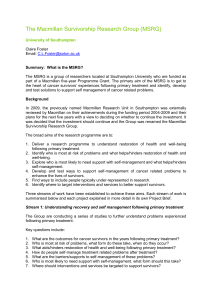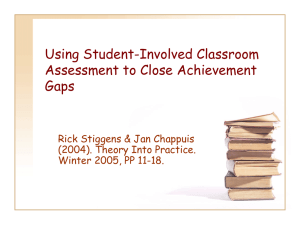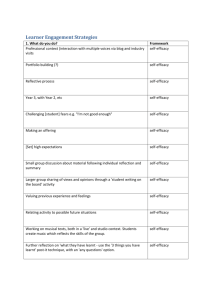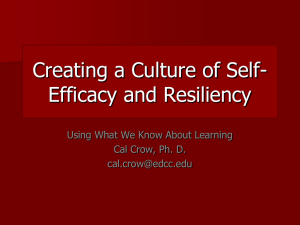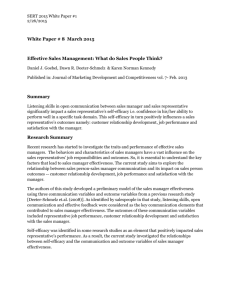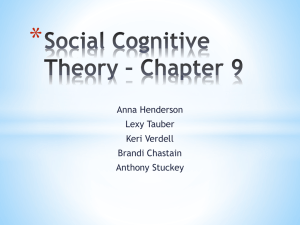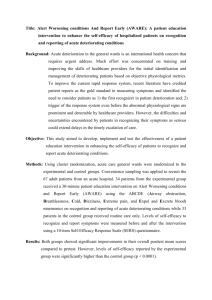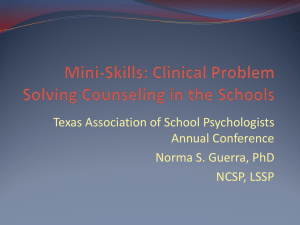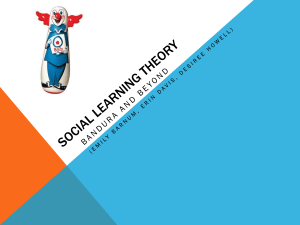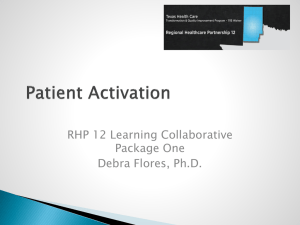the summary - Macmillan Cancer Support
advertisement
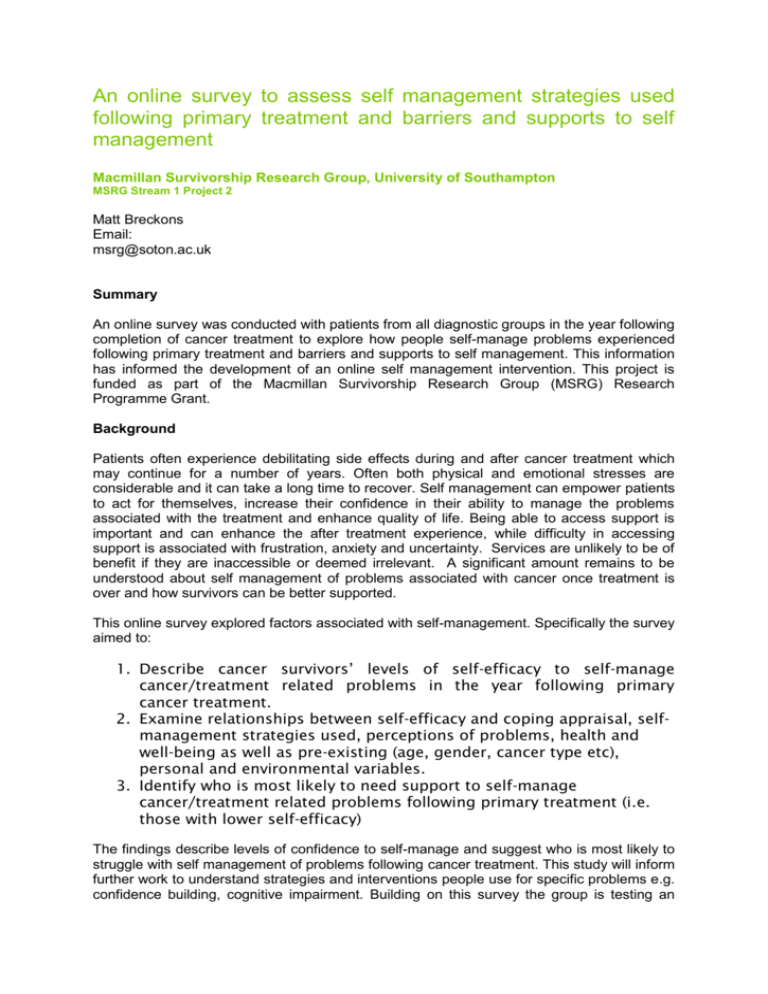
An online survey to assess self management strategies used following primary treatment and barriers and supports to self management Macmillan Survivorship Research Group, University of Southampton MSRG Stream 1 Project 2 Matt Breckons Email: msrg@soton.ac.uk Summary An online survey was conducted with patients from all diagnostic groups in the year following completion of cancer treatment to explore how people self-manage problems experienced following primary treatment and barriers and supports to self management. This information has informed the development of an online self management intervention. This project is funded as part of the Macmillan Survivorship Research Group (MSRG) Research Programme Grant. Background Patients often experience debilitating side effects during and after cancer treatment which may continue for a number of years. Often both physical and emotional stresses are considerable and it can take a long time to recover. Self management can empower patients to act for themselves, increase their confidence in their ability to manage the problems associated with the treatment and enhance quality of life. Being able to access support is important and can enhance the after treatment experience, while difficulty in accessing support is associated with frustration, anxiety and uncertainty. Services are unlikely to be of benefit if they are inaccessible or deemed irrelevant. A significant amount remains to be understood about self management of problems associated with cancer once treatment is over and how survivors can be better supported. This online survey explored factors associated with self-management. Specifically the survey aimed to: 1. Describe cancer survivors’ levels of self-efficacy to self-manage cancer/treatment related problems in the year following primary cancer treatment. 2. Examine relationships between self-efficacy and coping appraisal, selfmanagement strategies used, perceptions of problems, health and well-being as well as pre-existing (age, gender, cancer type etc), personal and environmental variables. 3. Identify who is most likely to need support to self-manage cancer/treatment related problems following primary treatment (i.e. those with lower self-efficacy) The findings describe levels of confidence to self-manage and suggest who is most likely to struggle with self management of problems following cancer treatment. This study will inform further work to understand strategies and interventions people use for specific problems e.g. confidence building, cognitive impairment. Building on this survey the group is testing an intervention to support self-management following treatment to help enhance people’s self efficacy, problem resolution and ultimately restoration of health and well-being. Key Findings 182 eligible respondents were recruited. Respondents represented a range of ages, cancer and treatment types. Respondents reported a range of selfefficacy (confidence) scores to manage problems related to their illness, reporting lower self-efficacy to manage problems such as fatigue, emotional distress and health problems. Self-efficacy scores were associated with several variables including gender, caring responsibilities, whether or not cancer affected work, health and wellbeing, self-management activity, personal and environmental resources. Regression modelling allowed variables to be identified which accounted for variance in self-efficacy scores. The modelling suggested that factors contributing the most to a low self-efficacy score (i.e. feeling less confident to achieve particular goals associated with cancer and its treatment) were: having a more threatening perception of cancer. having a low subjective sense of well-being, experiencing a high level of fatigue/low amount of energy, having limited social support. Other significant factors that contributed to low self-efficacy were: more difficulties with sexual function, reporting fewer benefits from having had cancer, being female. Why is this work important? This study has given us a better idea of who is most likely to have lower levels of self-efficacy following primary treatment. With a rising emphasis on supported self-management this study provides important information for clinical practice with regards identifying people more likely to have lower levels of confidence to manage cancer and treatment related problems. Further research is needed in this area to develop interventions to support self-efficacy in specific situations such as helping people feel more confident to manage fatigue in their everyday life. This work forms part of the MSRG research programme and is a key milestone in informing the development of the development of an online intervention to support self management of cancer related fatigue following primary treatment. The project will directly complement the development of Macmillan’s Self Management learning resources and the work of the National Cancer Survivorship Initiative (NCSI) Self Management work stream. There are going to be many more people living with and beyond cancer in the future and a rising emphasis on supported self-management . Encouraging people to self-manage is an important way of empowering people to take control of their health and also conserving scarce health care resources. Most cancer survivors live well with their cancer related problems, but around a third report difficulties, which may include fatigue, pain, sexual, psychological and continence problems. Failure to provide support for these people may well affect their ability to self-manage as well as their health and well-being.
